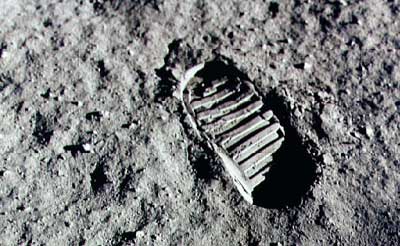Beyond the Outer Space Treatyby Taylor Dinerman
|
| The OST was designed in an age when two superpowers were competing for control of the heavens and there was little prospect for private enterprise in space, aside from what was then a tightly-regulated, monopoly-controlled telecommunications market. |
Today things have changed considerably. Not only are there lots of nations with thriving space programs, but more and more players are entering the whole “NewSpace” market and some of the big old-style companies, such as Northrop Grumman, are getting in on the act by buying control of Burt Rutan’s Scaled Composites. Space tourism, and the eventual low-cost access to orbit that it implies, is the thin end of the wedge for a whole new area of commercial space activities including space solar power, space mining, and space manufacturing.
The preamble of the OST states, “Believing that the exploration and use of outer space should be carried out for the benefit of all peoples irrespective of the degree of their economic and scientific development.” Like the “common heritage of mankind” language in the LoST, this opens the way for an attempt at control and taxation of the commercial space activities by international bodies.
No major organization has yet tried to implement such control, but the day may soon come when someone will try and push the limits. The OST states in Article 6 that, “The activities of non-governmental entities in outer space shall require authorization and continuing supervision by the appropriate State Party to the Treaty.” For the moment this has worked out pretty well, but when one state or group of states considers that the authorization and supervision of private activities in space by another state is inadequate or is harmful to their interests, this will lead to a legal or moral challenge to the responsible state. Such a challenge could easily lead to the first major politico-legal space crisis.
The proposals that have so far been made to replace the principle of private property guaranteed by a responsible nation state, with either a long-term lease granted by the UN or some other sort of collective body or by license to operate, are at best stopgap measures. At worst they will be excuses for international bureaucrats to impede and probably endanger any truly productive work. The corruption for which the UN has become all too well known should be allowed to replicate itself in outer space.
That is not to say that nation states cannot themselves be corrupt or incompetent, but at least with democracies there are built-in corrective mechanisms that are lacking in international institutions such as the UN and EU. As humanity moves out into the solar system, it will carry with it all its flaws and its many sins, but let us try and not make them our main payload.
Fortunately the UN is a weak and increasingly discredited organization. Its future ability to influence the regulation of space commerce will be, for all practical purposes, non-existent. Yet some international agreement will have to be made delineating who controls or owns what objects and who has controls of what space lines of communications. What will probably end up happening after the first big crisis is a “Space Yalta”.
| As humanity moves out into the solar system, it will carry with it all its flaws and its many sins, but let us try and not make them our main payload. |
The original 1945 Yalta agreements did not, in and of itself, carve up Europe into spheres of influence. Instead they recognized the unpleasant (for the West) truth, that Stalin’s Soviet Union would keep control of the nations of Eastern Europe, from which they had just ejected Nazi Germany. A future Yalta, might, for example, agree that the US and China would keep control of those parts of the Moon on which they had established their respective bases and the surrounding areas.
If the Law of the Sea Treaty is ratified, and if this results in the negative effects on America’s economic and national security interests which the opponents of the treaty predict, this will further undermine US support for the OST. The lesson will be that obsolete and badly written international agreements which depend to any extent whatsoever on the so-called international community’s goodwill towards the US are, in the long term, doomed. The space industry and its supporters should begin thinking about what kind of a legal regime will replace the OST when it finally crashes and burns.
